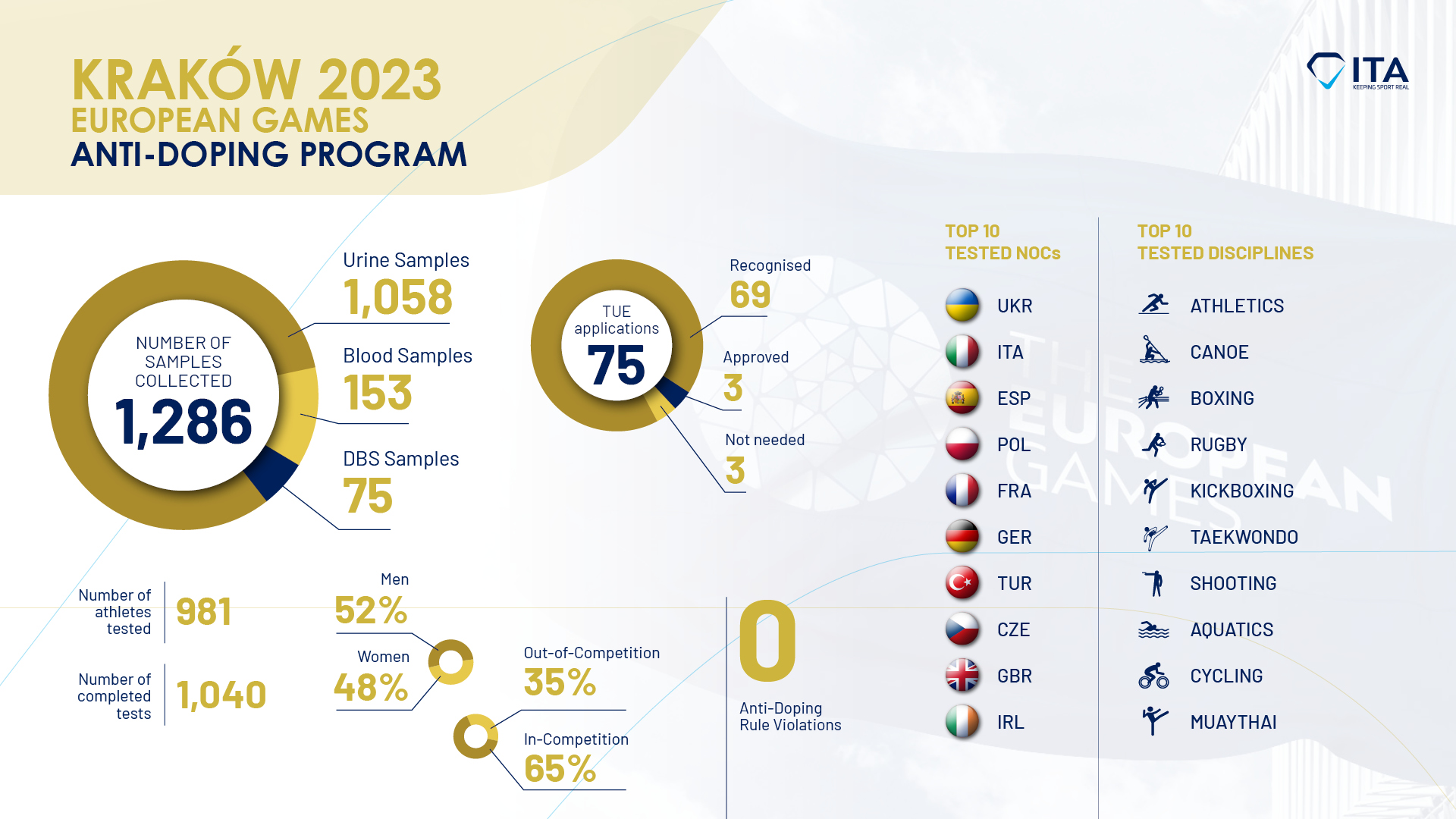Menu
 Back
Back
2 November 2023
The EOC had entrusted the ITA with the implementation of its anti-doping program in 2021, relying on the ITA’s expertise with major sports events and independent approach. This summer, the ITA was responsible for the clean sport program for the European Games for the first time.
With POLADA as the implementing partner and with the support of the Kraków-Małopolska Organising Committee, over 1,280 samples were collected – 65% of them in-competition, 35% out-of-competition. These urine, blood and Dried-Blood-Spot (DBS) samples were collected in more than 30 doping control stations across 25 venues in 13 cities/towns, as well as in the athletes’ village and subsequently analysed at the WADA-accredited laboratories in Warsaw, Poland, and Cologne, Germany. All doping controls for the event were based on the ITA’s comprehensive risk assessment and resulting test distribution plan.

The statistics of the ITA's anti-doping program for the European Games Kraków-Małopolska 2023.
The ITA also processed 75 applications for Therapeutic Use Exemptions (TUEs) in cases when athletes needed to use substances on the Prohibited List for medical reasons, and led the Athlete Biological Passport (ABP) Program for the event.
The anti-doping workforce for the European Games was a well-coordinated effort, comprising 17 Polish doping control officers, over 40 doping control officers from 19 other European countries (all ITA-certified), and over 30 experienced phlebotomists from Poland. Additionally, around 120 chaperones, ITA staff on-site, and support personnel brought the total strength of the anti-doping workforce to over 260 individuals.